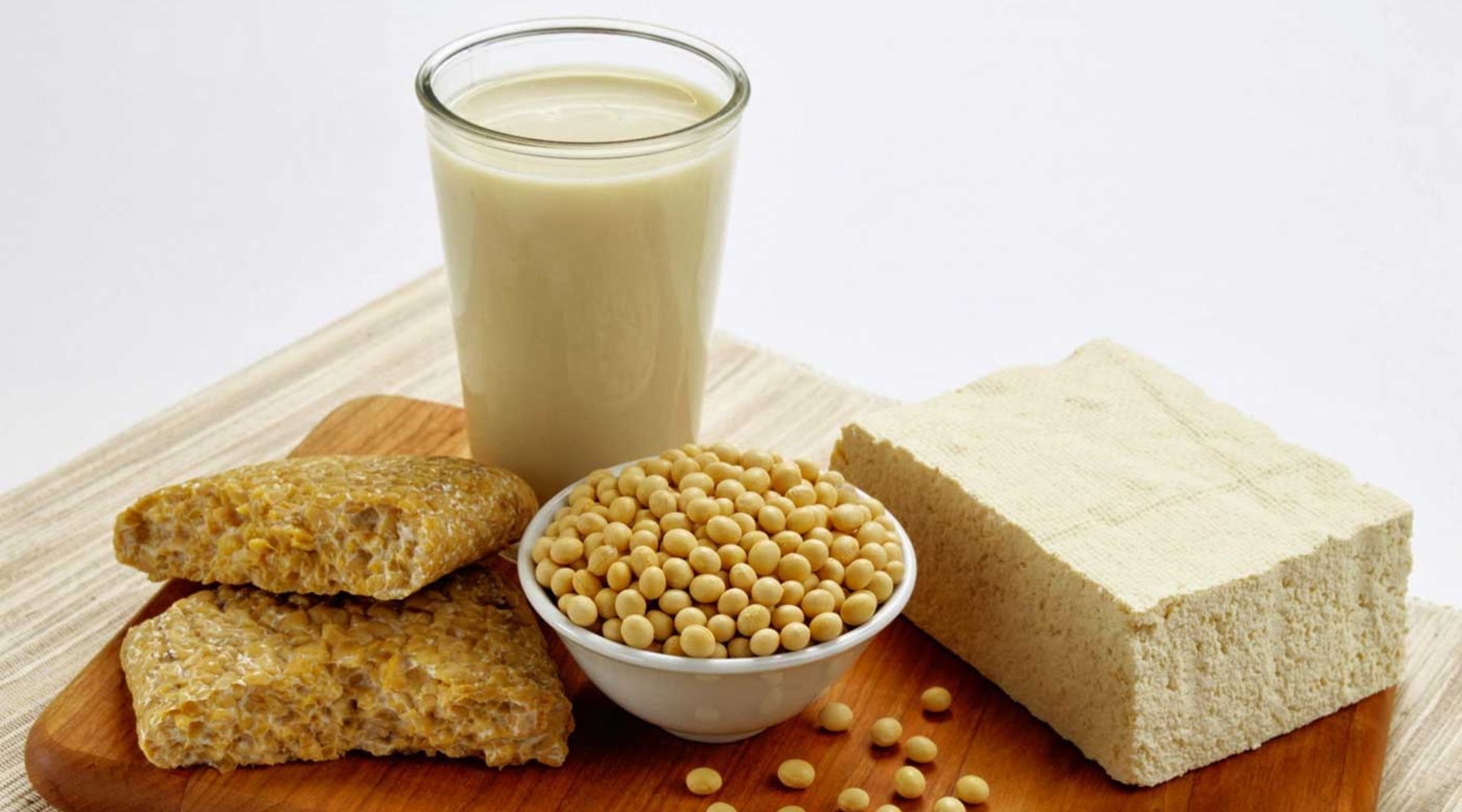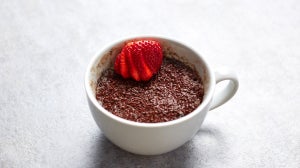
Did you know there’s a whole lot more to protein than just whey? If you’re plant-based, can’t deal with dairy, or just fancy trying something new, then it’s time to get clued up on this plant-based supplement.
Coming from the humble soybean, this supplement is completely meat-free and boasts some great nutritionals. So, we put it under the microscope to see if the science backs up it up. Are there any health benefits, and how can you use it to reach your fitness goals?
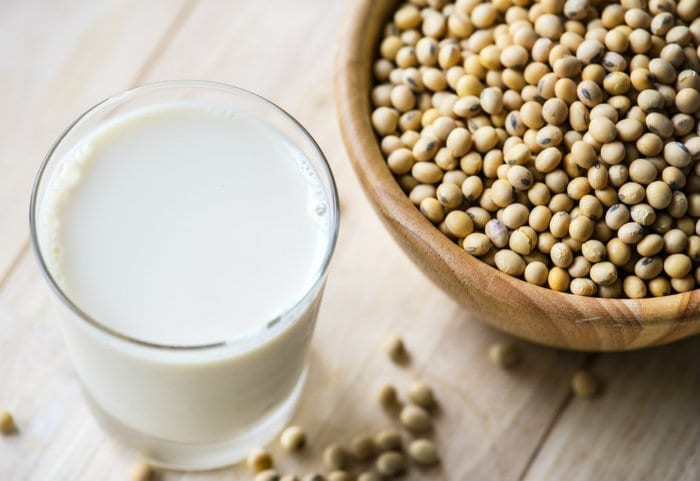
What is soy protein?
It is a plant-based protein that comes from the soybean, which is a legume. This makes a great source of protein for both vegetarians and vegans alike, as well as those avoiding dairy, with no cholesterol and very little saturated fat.5
There are three categories:
1. Soy protein isolate.
This is the highest quality soy protein available. It’s more refined and processed than the others, but it has the highest biological value compared to the other two types below. This means the body will use a large amount of what’s ingested.1
This type can be found in:
- Protein-based supplements (shakes, bars etc.)
- Dairy products
- Certain meat substitutes
- Condiments
- Bread products
2. Soy protein concentrate (SPC)
SPC is made by removing the sugars (a part of the soybeans carbohydrate) from de-hulled soybeans. It’s still high in protein, but maintains most of its fibre, which is useful for digestive health.3
SPC is most commonly found in:
- Cereals
- Baked goods
- Infant milk formula
- Some meat substitute products
- Beer
3. Textured soy protein (TSP) or textured vegetable protein (TVP).
This is made from soy protein concentrate, but is found in larger pieces or chunks. It often resembles a meat-based product
TSP can be used to make many of the popular traditional meat-based meals such as soups, curries, stews and more.3
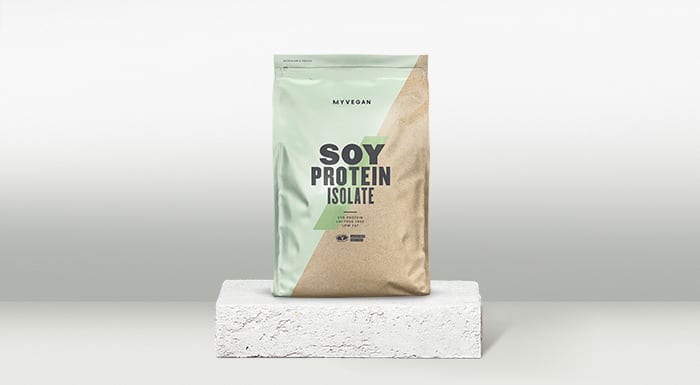
What are the health benefits of soy protein?
One of the reasons why people move towards a more plant-based diet could be to eat less dietary cholesterol, as a diet that is high in meat is often high in cholesterol.
A benefit of soy protein is that it has no cholesterol and low amounts of saturated fat, whilst being a high quality protein. This makes it a useful alternative to a meat-based equivalent.6
There’s further evidence that soy might actually lower LDL levels (the so-called “bad cholesterol”) and raise HDL levels (good cholesterol). The effects were found to be greater in the less-processed soybeans rather than the refined proteins.6
Soy protein is relatively high in zinc, unlike many other plant-based sources. The absorption of zinc from soy is only about 25% lower than that of meat. Low levels of zinc are linked to low testosterone which impacts muscle growth and feeling tired. 4
So, if you find you’re often feeling drowsy, then maybe try sipping on a soy protein shake.
It is also high in vitamin B, calcium, iron, magnesium, phosphorous, and potassium, which are needed to support the immune system and energy production. This can improve that all round feeling of health and wellness and give you that all-important energy boost. 4
What are the uses of soy protein?
It can be used as a replacement or an addition to your diet. Since it comes in so many varieties and options there are countless possibilities.
Soy protein can also be used as an addition to your regular diet. If you’re looking to increase your protein intake, but can’t use whey or casein, then this could be a great alternative. It’s high in branched-chain amino acids and contains all 9 essential amino acids, so you won’t have to give up on your muscle-building goals. 1
Looking to get lean? Soy protein supplementation can fit easily into a calorie deficit diet just as well as a diet designed for muscle gain. Soy is high in an amino acid called leucine, which is responsible for driving muscle growth. This process is essential for both cutting and bulking when you want to maintain and build muscle. 1
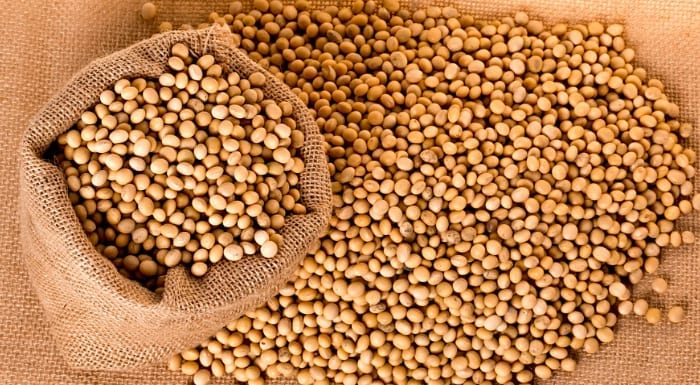
What are the side effects of soy protein?
Soy has got a lot of bad press over the years. It has been linked to lowering testosterone in men and increasing phytoestrogens (dietary oestrogens). This has only been noted in isolated cases where the intake of soy protein was extremely high and the diet itself was unbalanced. 7
The majority of the research concludes that the risks of soy as a “feminising” food has been overstated. Soy will have a largely neutral effect on testosterone if combined with a balanced diet. 7
For most people, it is considered safe with little to no side effects as long as you are not allergic to soy.
Soy nutritional information
The soybean contains all three macronutrients — protein, fat and carbohydrates. According to the USDA Food Composition Database, for every 100g of raw soybean, there’s 36g of protein, 20g of fat and 30g of carbohydrates on average.
These ratios will change depending on the product in question - A shake made from soy protein isolate will have a very different makeup from a soy protein burger.
Soy is high in protein, Vitamin C, and folate. It’s also a good source of fibre, calcium, iron, magnesium, phosphorous, potassium, and thiamine. 4
Soy protein is a plant-based supplement. Both animal and plant-based proteins are made up of amino acids. Being a complete protein, this means that soy protein is made up of all the 9 essential amino acids (leucine, isoleucine, lysine, methionine, phenylalanine, threonine, tryptophan, valine, and histidine). 4
Soy is a good source of branched-chain amino acids. Branched-chain amino acids (BCAAs) are made up of leucine, isoleucine and valine. These amino acids play an important role in building muscle, recovering from heavy workouts, and improving exercise performance. 4
Soy protein or whey protein?
Many people can’t use whey protein. For some, it might be an ethical or dietary choice as they wish to live a vegan or vegetarian lifestyle.
For others, it could be an intolerance issue. Lactose intolerance is one of the most common food sensitivities that exists. Whey is made from dairy, so if you suffer from lactose intolerance it might not be a good option.
Whey protein is more rapidly absorbed than soy protein.10 However, soy protein is a complete protein with all of the essential amino acids. Because of its slightly slower absorption rates, it could have the potential benefit of keeping you feeling full for longer.1
Another benefit of soy protein is that it contains no cholesterol, making it ideal for those who are concerned about their cholesterol levels.
Growth hormone is a hormone inside us that decreases with age. It has many roles in the body which include cellular growth and metabolism. Arginine and lysine are amino acids which are needed help increase growth hormone. Containing both of these amino acids, soy protein could have an acute effect on growth hormone levels.1
Take home message
Soy protein is a plant based protein that can easily fit into a vegan or meat eaters diet. Soy is a great alternative to whey and is dairy free. It’s one of the few plant-based proteins that contains all the essential amino acids.
It comes in three main forms — soy protein isolate, soy protein concentrate, and textured soy protein.
This plant-based protein has no harmful effects if eaten as part of a balanced diet, besides being a potential allergen for some.
No need to panic if whey doesn’t work for you — soy protein is the perfect alternative to smash your gym goals, or to simply supplement a plant-based diet.
FAQ
What are the benefits of soy protein powder?
The main health benefit of soy protein is that it has no cholesterol and low amounts of saturated fat compared to meat based products, whilst being a source of high quality protein
What is soy protein?
Soy protein is a plant-based protein which comes from the soybean, making it both vegan and vegetarian.
What are the side effects of soy protein?
Some isolated cases have been found where high intake of soy protein leads to lower testosterone levels in men. However these cases were only found when soy protein intake was extremely high and the individuals had a highly unbalanced diet.
Does soy protein cntain BCAAs?
Soy protein is high in branched chain amino acids and contain all 9 essental amino acids.
Our articles should be used for informational and educational purposes only and are not intended to be taken as medical advice. If you're concerned, consult a health professional before taking dietary supplements or introducing any major changes to your diet.
- Hoffman, J. R., & Falvo, M. J. (2004). Protein – Which is Best? Journal of Sports Science & Medicine, 3(3), 118–130.
- Jargin, S. V. (2014). Soy and phytoestrogens: possible side effects. GMS German Medical Science, 12. https://doi.org/10.3205/000203
- Lusas, E. W., & Riaz, M. N. (1995). Soy protein products: processing and use. The Journal of Nutrition, 125(3 Suppl), 573S-580S. https://doi.org/10.1093/jn/125.3_Suppl.573S
- Messina, M. (2016). Soy and Health Update: Evaluation of the Clinical and Epidemiologic Literature. Nutrients, 8(12). https://doi.org/10.3390/nu8120754
- Montgomery, K. (2003). Soy Protein. Retrieved March 26, 2019, from https://www.ncbi.nlm.nih.gov/pmc/articles/PMC1595159/
- Olsen, N. (2017). Is soy good or bad for you? Facts and nutrition. Retrieved March 26, 2019, from Medical News Today website: https://www.medicalnewstoday.com/articles/320472.php
- Sukalingam, K., Ganesan, K., Das, S., & Thent, Z. C. (2015). An insight into the harmful effects of soy protein: A review. La Clinica Terapeutica, 166(3), 131–139. https://doi.org/10.7417/CT.2015.1843
- Tokede, O. A., Onabanjo, T. A., Yansane, A., Gaziano, J. M., & Djoussé, L. (2015). Soya products and serum lipids: a meta-analysis of randomised controlled trials. British Journal of Nutrition, 114(6), 831–843. https://doi.org/10.1017/S0007114515002603
- Anderson, J. W., Baird, P., Davis, R. H., Ferreri, S., Knudtson, M., Koraym, A., … Williams, C. L. (2009). Health benefits of dietary fiber. Nutrition Reviews, 67(4), 188–205. https://doi.org/10.1111/j.1753-4887.2009.00189.x#
- Dangin M, et al. Influence of the protein digestion rate on protein turnover in young and elderly subjects . J Nutr. (2002). https://www.ncbi.nlm.nih.gov/pubmed/12368423

Grant is a sports nutritionist and certified strength coach. He has multiple postgraduate diplomas in nutrition and strength coaching as well as a Master’s degree in Sports and Exercise Nutrition, with a specific focus on protein. Grant has worked in the fitness industry for well over a decade and has helped coach professional athletes and sports teams, as well as the average gym-goer looking to get in the best shape possible. He now spends most of his working time teaching fitness professionals and coaching people remotely.
He’s a big believer in practising what he preaches and has been involved in resistance training and martial arts for over 20 years. In his spare time, Grant enjoys being with his wife and daughter as well as the family dogs and catching up on the latest Netflix series.
Find out more about Grant’s experience here and about his personal training here.
